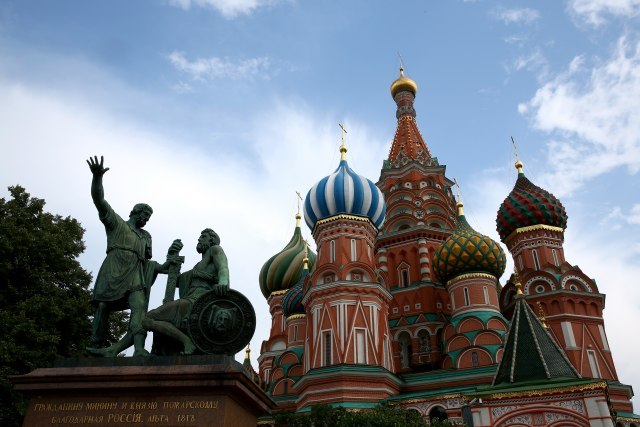Moscow develops special strategy for the Balkans: How to infiltrate everywhere
Russia's International Relations Council (RIAC) has developed a special project called "Russia in the Balkans", writes Montenegro's portal Analitika
Friday, 25.10.2019.
14:28

Moscow develops special strategy for the Balkans: How to infiltrate everywhere
The Council (RIAC) is an influential academic and diplomatic group in the form of a think-tank, chaired by former Russian Foreign Minister Igor Ivanov, current Russian President's Secretary Dmitry Peskov, current Deputy Foreign Affairs Minister Igor Morgulov, and others.Among its co-founders are, according to Analitika, the Ministry of Foreign Affairs of Russia, Russian Ministry of Education and Science, Russian Academy of Sciences, Russian Union of Industrialists and Entrepreneurs, and the international media group Interfax.
In a document called "Russia in the Balkans" released this year, Russia's strategy is set out in five chapters. The Balkans are described as the "epicenter of international developments", looking at the present circumstances within the region and analyzing the interests of leading actors, and finally proposing a new Russian strategy for this area.
According to Analitika, the document is not diplomatically moderate, and it's rather packed with Cold War terms. In this document, it is stated, among other things, that "Russia is interested in preserving stability in the Balkans, but it is also interested in preserving various forms of the presence it has historically enjoyed in the region".
This special document, among other things, points out that the Balkans can play an important role in the upcoming architecture of relations, but also notes that Russia does not have as much influence in the Balkans as the Western media present through pushing the "Russian threat" narrative.
Therefore, a new approach and a new strategy for Russia in the Balkans are proposed. And Russia's proposed new strategy consists of three chapters analyzing the factors influencing Russia's foreign policy towards the Balkans, the importance of the Balkans to Russia, and proposing a Russian action plan based on specific tactical principles.
First, all EU's "failures" in the Balkans are listed, mentioning "the short-sighted political decisions, mishaps and blunders of the leading EU states in their relations with the 'main candidate for accession', Serbia". Here, "the scandal at the Switzerland–Serbia game at the 2018 World Cup" is mentioned, and "the disrespect for the Serbian delegation during the events marking the allied victory 100 years ago in World War I in Paris".
Among negative factors, "the impossibility of counteracting NATO's expansion" is listed as the first one. Russia could not give an answer to this vital and particularly sensitive question. Montenegro has already become a NATO member in 2017. Having made radical changes to its statehood, Macedonia received an invitation and will become a member in the near future.
The coordinated Euro-Atlantic position is also regarded as negative. United States, United Kingdom and the Visegrád Group have a coordinated stance on the issue of the Balkans' Euro-Atlantic integration.
Then a list of reason follows, as to why Russia should not abandon its interests in the Balkans, leading to the conclusion that "if the Balkans ultimately moves into the Euro-Atlantic realm of influence, Russia will significantly worsen its situation in Europe", which will, in turn, "untie Brussels' hands and open new opportunities for the European Union to expand eastward".
Russia's action plan
Russia's withdrawal from the Balkans means that Russia will lose a key area on its "playing field" as a significant segment of overall antagonizing policies towards the west, the author of the text Nebojsa Todorovic states.Therefore, Russia needs to develop a new strategy for the Balkans, with an understanding of the region's systemic prospects. Some of those "tactical" principles are the following:
- Creating and supporting constructive political forces in Serbia, Slovenia, Croatia, Albania and other countries in the region, forces that would be oriented toward Moscow's projects,
- Expanding its media presence in the Balkans. Replacing the narrative of "Russia as a security provider" and "Russia as an energy supplier" with "Russia as a vehicle of regional stability," "Russia as a vehicle of humanitarian cooperation" and "Russia as a supplier of e-technologies and efficient technological solutions",
- Continuing and increasing investment into regional manufacturing companies,
- Converting economic presence into the growth of educational, economic and cultural cooperation,
- Developing constructive approaches to religion, taking the trend towards the fragmentation of the Eastern Christian space into account.















































Komentari 4
Pogledaj komentare